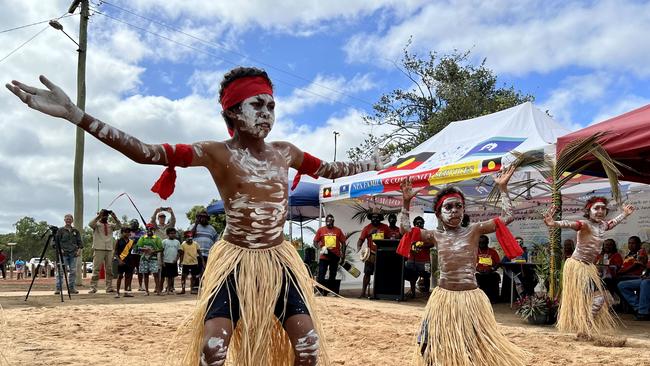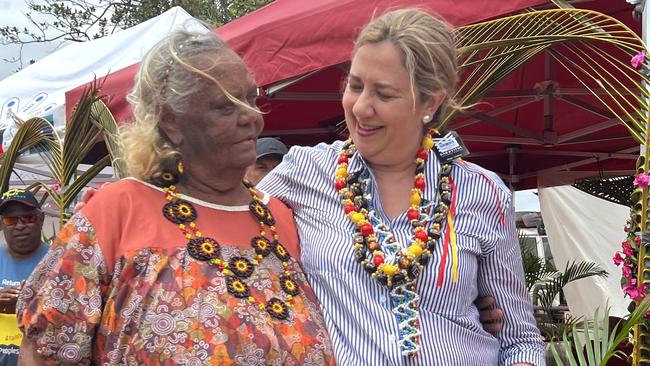Day of celebration for Cape York crusaders
At the tip of Cape York, the Queensland government formally and finally recognised the land as belonging to the Gudang Yadhaykenu, Atambaya and Angkamuthi (Seven Rivers) peoples.

At the tip of mainland Australia, the dark deeds of the colonising Jardine family have haunted the traditional owners of Cape York for more than 150 years.
In the 1860s, Frank and Alick Jardine – sons of Scottish-born settler John Jardine – drove cattle from central Queensland to the nascent white settlement of Somerset, at the top of the far north Queensland peninsula, killing Aboriginal people as they made their 10-month trek.
For Gudang Yadhaykenu traditional owner Nick Thompson Wymarra, the brutal history of the Jardines – as police magistrates, administrators and farmers – made Wednesday’s landmark government handing back of 362,000ha of Cape York land all the more meaningful.
“At the time of the takeover by the state government, we lost everything,” Mr Wymarra told The Australian.
“We lost our late and loving ancestors, we lost our language, we lost our culture, we lost our dreaming. But I can proudly say right now, today, getting the national park and the islands back, we have revived our dreaming.”
In a ceremony at Injinoo, at the tip of Cape York, the Queensland government formally and finally recognised the land as belonging to the Gudang Yadhaykenu, Atambaya and Angkamuthi (Seven Rivers) peoples. The parcel of land includes 319,300ha of national park – including a new designated eco-tourism area – and 42,799ha of Aboriginal freehold.
Importantly, the Jardine River National Park (named for the infamous Jardine family of colonisers) and the Denham Group National Park have been stripped of their old titles and renamed Apudthama National Park (meaning “everybody”) and Yamarrinh Wachangan Islands National Park.

The parks will now be jointly managed by native title holders and the Queensland government, and are the last of the mainland Cape’s national parks to be returned to traditional ownership.
Mr Wymarra – who helped negotiate the land hand back for eight of the past 27 years of struggle with the government – said the renaming represented the righting of a great insult to his people.
“For our late ancestors, if they were speaking in their native tongue, they were punished and had their rations taken off them,” he said.
“Whereas today, having our land, our sea, and our islands back (and to have the names changed), we’re able to practice our culture and our language, Injinoo Ikya.”
Addressing the ceremony, Premier Annastacia Palaszczuk acknowledged atrocities committed against First Nations people in Queensland’s early history.
“It includes here in the Northern Peninsula Area; it is, in part, a painful history,” Ms Palaszczuk said.
“I acknowledge the courage and resilience demonstrated by your ancestors. I acknowledge the courage and resilience continued by the current generation which ultimately led to our government returning these lands to you, but we must never, ever forget the past.”
Atambaya traditional owner Gina Nona said she and her mother, 82-year-old Cecilia Ropeyarn, had eyes full of tears for the entire ceremony. “It means a lot to me, after all the struggle, we’ve come a long way,” Ms Nona said.
Balkanu Cape York Development Corporation executive director Gerhardt Pearson said: “It’s simple – generations of Bama from this area know this land is their birthright.”




To join the conversation, please log in. Don't have an account? Register
Join the conversation, you are commenting as Logout